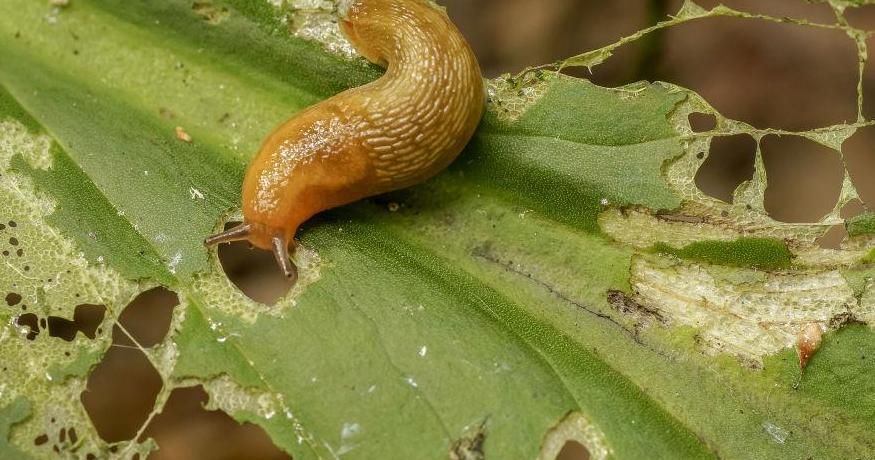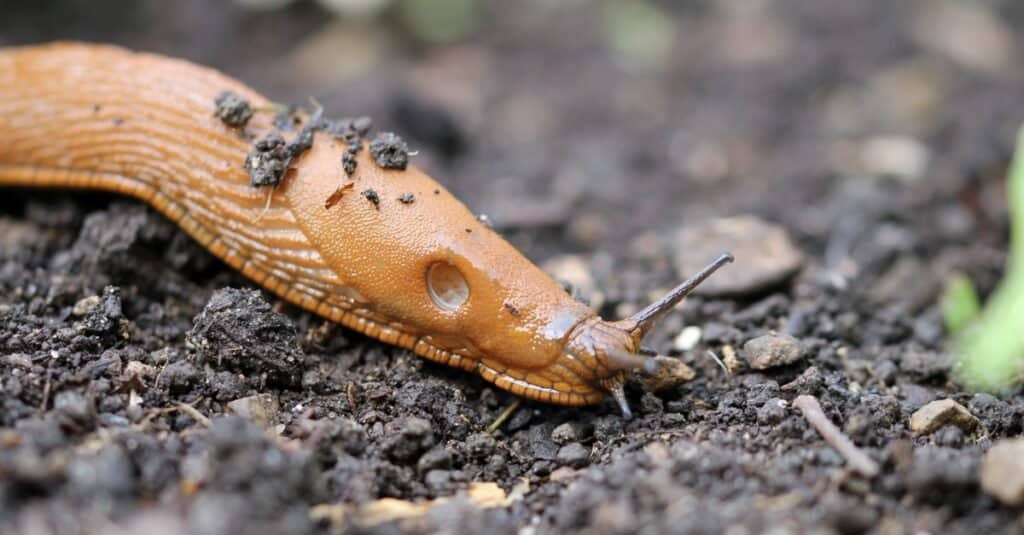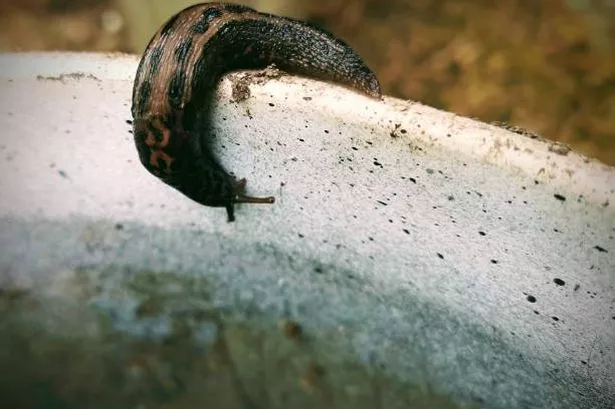Effective DIY Solutions to Deter Garden Slugs

Garden slugs are one of the most common pests that gardeners encounter. These slimy creatures can cause significant damage to plants, and they reproduce quickly, making it difficult to control their populations. Fortunately, there are several effective DIY solutions that you can use to deter garden slugs and protect your plants.
In this article, we’ll explore five different approaches to slug control, covering everything from natural remedies to physical barriers and beyond. We’ll also answer some frequently asked questions about garden slug prevention, so you can approach this problem with confidence. Let’s get started!
1. Natural Slug Repellents

If you’re looking for a safe and natural way to deter garden slugs, there are several household items you can use as repellents. Here are two natural slug deterrents you can try:
A. Coffee Grounds
Coffee grounds are an excellent natural slug repellent. Simply sprinkle a layer of used coffee grounds around your plants to create a barrier that slugs won’t want to cross. The caffeine in the coffee is toxic to slugs, making them less likely to venture into your garden.
B. Eggshells
Crushed eggshells are another effective slug deterrent. The sharp edges of the shells irritate the soft underbelly of slugs, making it uncomfortable for them to crawl over. To use eggshells as a repellent, crush them up and sprinkle them around your plants.
Both of these natural slug repellents are safe for pets and children, so you don’t have to worry about any harmful pesticides contaminating your garden.
2. Beer Traps

Beer traps are a popular and effective way to capture and kill slugs. Here’s how to make a beer trap:
A. Materials Required:
- Shallow container (like a tuna can)
- Beer
- Plastic wrap
- Rubber band
B. Steps:
- Fill the shallow container with beer.
- Cover the top of the container with plastic wrap, securing it in place with a rubber band.
- Poke a few small holes in the plastic wrap.
Slugs are attracted to the yeast in the beer and will crawl into the container through the holes in the plastic wrap. Once they’re inside, they’ll drown in the beer. You’ll need to replace the beer in the trap every few days to keep it effective.
3. Copper Barriers
Copper is a natural slug repellent that works by creating an electrochemical reaction on the slug’s slime trail. This reaction produces a mild electric shock that slugs find uncomfortable, keeping them away from your plants. Here’s how to create a copper barrier:
A. Materials Required:
- Copper tape or wire
- Scissors
B. Steps:
- Cut the copper tape or wire to the desired length.
- Place the tape or wire around the perimeter of your garden bed, making sure that it forms a continuous loop.
- Make sure the copper barrier is at least 2 inches wide so that it’s effective.
Copper barriers are a low-maintenance option for slug control, as they don’t require any upkeep once they’re installed.
4. Handpicking
Handpicking is a labor-intensive but effective way to control a small population of slugs. Here’s how to handpick slugs from your garden:
A. Materials Required:
- Rubber gloves
- Bucket
- Salt or soapy water (optional)
B. Steps:
- Put on the rubber gloves.
- Search your garden for slugs, especially early in the morning or after a rainfall when they’re most active.
- Pick up the slugs and place them in the bucket.
- Dispose of the slugs by either releasing them far from your garden or putting them in salt or soapy water to kill them.
Handpicking is a time-consuming process, but it’s an eco-friendly option that doesn’t involve any harmful chemicals.
5. Diatomaceous Earth
Diatomaceous earth is a natural powder made from fossilized remains of diatoms (a type of algae). It’s effective against a wide range of pests, including slugs. Here’s how to use diatomaceous earth to deter slugs:
A. Materials Required:
- Diatomaceous earth
- Gloves
- Dust mask
B. Steps:
- Put on gloves and a dust mask.
- Sprinkle a layer of diatomaceous earth around the base of your plants.
- Reapply after rainfall or as needed.
The sharp edges of the diatomaceous earth will cut through the slug’s soft body, causing them to dehydrate and die. Be sure to wear gloves and a dust mask when applying diatomaceous earth, as it can be harmful if inhaled.
FAQs
Q1. How doI know garden slugs are gross, but are they really harmful to my plants?
Yes, garden slugs can cause significant damage to plants by feeding on the leaves, stems, and fruits. They can also spread diseases and attract other pests to your garden. It’s important to take action to prevent slug infestations in order to protect your plants.
Q2. Can I use any type of beer for beer traps?
Yes, you can use any type of beer for beer traps. However, it’s best to avoid using expensive craft beers, as slugs don’t have sophisticated taste buds and will be attracted to any type of beer. Inexpensive lagers or ales work just fine.
Q3. Is it safe to handle slugs with my bare hands?
While slugs aren’t toxic or venomous, they do carry bacteria that can be harmful if transferred to humans. It’s best to wear rubber gloves when handling slugs to protect yourself from potential infection.
Q4. Will copper barriers harm other wildlife in my garden?
Copper barriers are safe for most wildlife, including birds and mammals. However, they can be harmful to snails, which are closely related to slugs. If you have snails in your garden, you may want to consider alternative slug control methods.
Q5. How often should I apply diatomaceous earth?
You should apply diatomaceous earth around the base of your plants after rainfall or as needed. This could mean applying it every few days if you live in a rainy climate, or only once a week if it’s dry.
Video
Conclusion
Garden slugs might be a nuisance, but with these effective DIY solutions, you can keep them at bay and protect your plants. From natural repellents like coffee grounds and eggshells to physical barriers like copper tape and handpicking, there are plenty of options available for gardeners looking to control slug populations. With a little effort and some experimentation, you’re sure to find a method that works for you. Happy gardening!